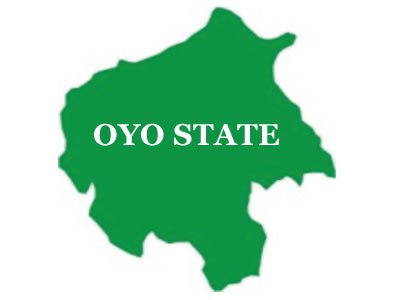The Oyo State Government on Tuesday said that the School Governing Boards (SGBs) have arrested the infrastructural decay in various secondary schools across state, saying that over N2bn have been expended by SGBs, philanthropists and old students associations on new buildings, renovation of the old ones, laboratories, ICT centres, chairs, desks and boreholes.
It said that the participatory schools’ management model, the first of its kind in the country introduced by Governor Abiola Ajimobi a year ago, is executing one infrastructural programme or the other in various schools, explaining that out of the N2bn, the SGBs have spent N1.269 billion realized from the N3,000 session fee paid by each student while projects already commissioned put in place by Old Students, philanthropists and corporate organisations stood at about N0.8billion.
The State Commissioner for Education, Science and Technology, Professor Adeniyi Olowofela during a three day expanded stakeholders meeting on Implementation of 2018 State Engagement Plan (SEP) organized by Ministry of Education in collaboration with United Nations Children’s Fund (UNICEF) held at Emmanuel Alayande Resource Centre, Samonda, Ibadan disclosed that the total number of people engaged by Government for this participatory service (SGBs) is 5,652 members for the 628 secondary schools in the state.
Professor Olowofela explained that SGB is made up of nine members who are on voluntary services except the statutory members that are civil servants which include the Principals, who are the secretaries of the Boards, nominees of Council Chairmen and Local Inspector Education (L.I.Es) where the schools are domiciled.
The Commissioner said that the introduction of the SGB was a masterstroke to change the fortune of education in the state, saying, “the SGB has led to renewed rivalry among various old students associations as they are all trying to outdo one another in providing infrastructure for their schools. During the launch of Education Trust Fund (ETF) in November 2017, the SGB of Government College, Ibadan was honoured as the best SGB and this has in no doubt propelled other SGBs to act.
“Recently, the SGB of Lagelu Grammar School also injected about N250m into the renovation of schools. There are so many SGBs working on renovations of their schools and this is evident in the present state on improved infrastructures as the government also observed that some of the buildings earlier earmarked for rehabilitation have already been renovated by SGBs or Old students.
“Our SGB intervention for schools is a success story and we need to commend various old students association for being part of this laudable achievement to renovate existing buildings, construct new ones, laboratories, ICT centres as well as provision of laboratories equipment, chairs, desks and boreholes,” Professor Olowofela said.
Prof. Olowofela appreciated the Governor Abiola Ajimobi administration for his transformational initiative in the States’ education sector and commended the collaborators, stressing that the benefits of UNICEF and State Planning Commission’s conduct of Annual School Census and others cannot be over emphasised.
While delivering his speech, the UNICEF Education Specialist, Mr. Muritala Muhammed stated that the essence of the training is to develop a better understanding of the use of SEP as a tool for education planning for basic and Secondary schools, update knowledge on the developed SEP and proffer best practices/way forward for maximum outcome in education service delivery in the State among others.
Mr. Muhammed stated further that UNICEF is set to collaborate and give technical support to partner states for the next 5 years in the area of Governance, Community and teacher development.




